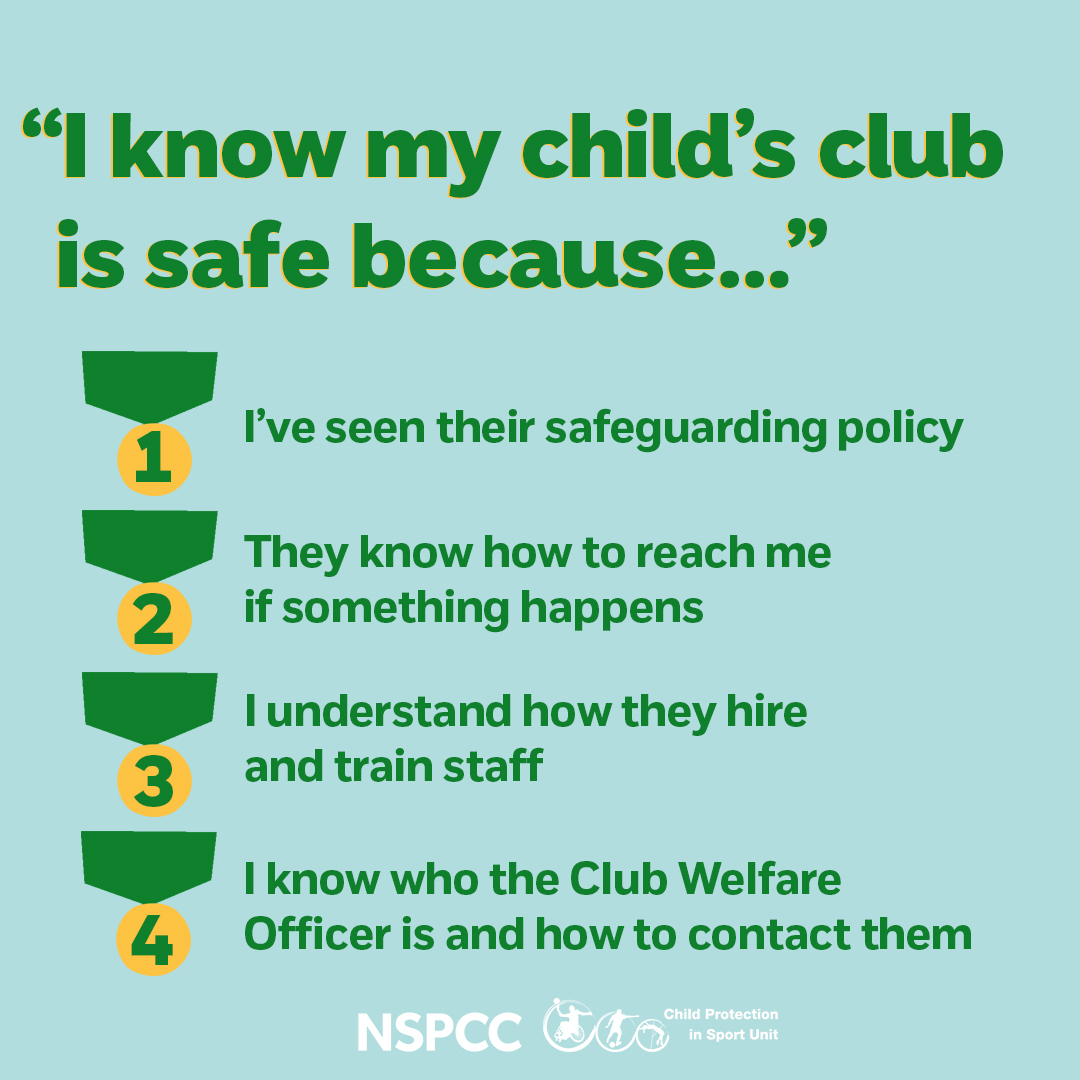
Let’s Talk About Keeping Children Safe in Football
In support of the NSPCC ‘Parents in Sport’ Week from Monday 5th to Sunday 11th October, we're asking every parent or carer with a child involved in the game to ensure they are clear about football’s safeguards.
Run by the NSPCC Child Protection in Sport Unit (CPSU), Parents in Sport Week aims to highlight the important role parents play in youth sport, from helping to keep children safe, to encouraging them to take part and achieve. As part of the campaign, the CPSU are asking sports parents to make the Sports Parents Promise.
The promise is a three-point pledge to their children to listen to them about their concerns, check clubs are safe to enjoy, and encourage their children to take part in a positive way. They hope this will help parents to understand how their contribution to their child’s sport makes it a safer place.
Consistently, children of all ages tell The FA they play football to have fun and be with friends. Thankfully, the vast majority of children’s experience in football is positive but, sadly for some, this isn’t the case.
From parents, carers, coaches, administrators, volunteers, referees and welfare officers, every adult in football has a responsibility to understand and uphold safeguards. This week, The FA and County FAs are asking every parent/carer to ensure they play their part by making sure they:
* know who coaches their child and that they are FA DBS-checked and safeguarding-trained.
* have the name and contact details of their club’s Welfare Officer in their phone.
* are clear about acceptable and unacceptable behaviours at their child’s club.
* sign-up, and adhere to, their club’s Code of Conduct.
* help their child to understand their rights and know who they can talk to you if they are worried about an adult’s behaviour.
* encourage their child to speak out about anything that worries them, no matter how big or small.
Sue Ravenlaw, FA Head of Safeguarding, said: “Hundreds of thousands of football’s volunteers have completed The FAs safeguarding training and a DBS check. Every club with youth teams has a dedicated Club Welfare Officer and a committee that has completed safeguarding training.”
“We want to ensure that every parent or carer is clear about the safeguards at their child’s club and understand how they can also help to keep their child safe.”
Tips for parents and clubs can be found at the NCSPPC (CPSU) website. For details on safeguarding in football, visit The FA's website. You can also find information shared by @EssexCountyFA on Twitter using the #ParentsinSportWeek2020 hashtag and by searching for ‘EssexFootball’ on Facebook.











